So, If a dozen of these eggs hatch, and I think that because she is a small duck to hatch so many eggs. There is just not enough of her to cover the entire clutch. She is also going through the moult, or losing her old feathers and growing new ones for winter. Still, she is in the sitting pose and is decidedly going to hatch these eggs. I put a piece of a board over the nest and her to shade her from the sun and give her shelter from the rain. She built the nest in the hay feeder for the sheep, but the sheep are not eating this old hay, so she should be safe.
What will I do with all the ducks? My goodness, there are already about 50 new ones and two more nest that I know of, no wait, three more, are going to hatch more babies. I am not allowed by law to sell the ducks, cleaned and frozen. I can sell them to some one who might want to have roast duck, but they would have to process them themselves and people are not much into that these days. I can only eat so much duck in a week! Birth control for ducks means penning the drakes away from the ducks so the eggs are not fertile and removing the eggs from the ducks as they lay them, if I find them, so they do not go broody. What a dilemma. Who would have thought I would ever be considering birth control for ducks at the Fat Ewe Farm? Hmmm...

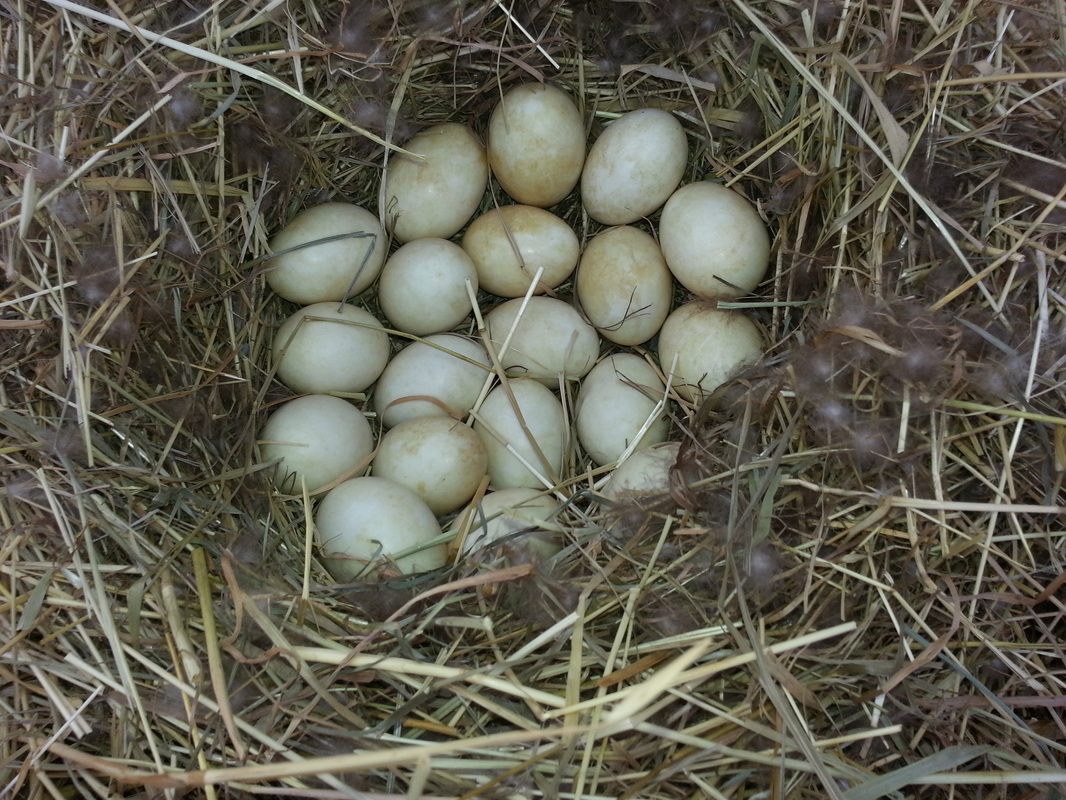
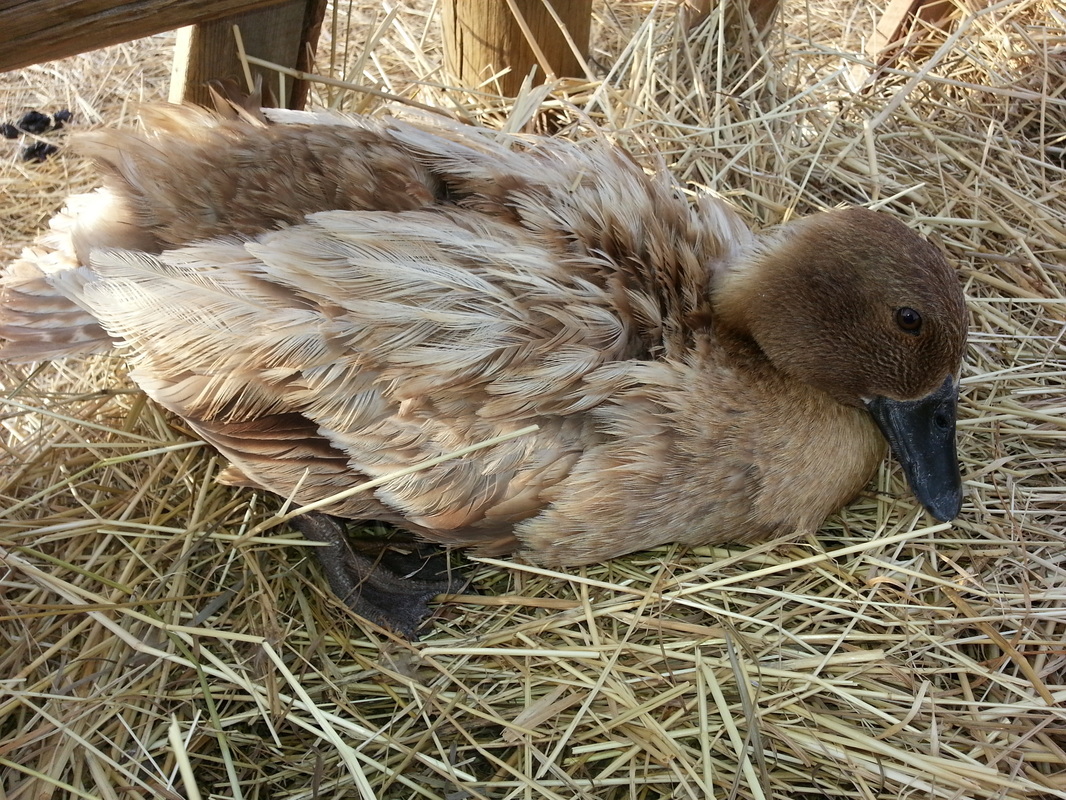
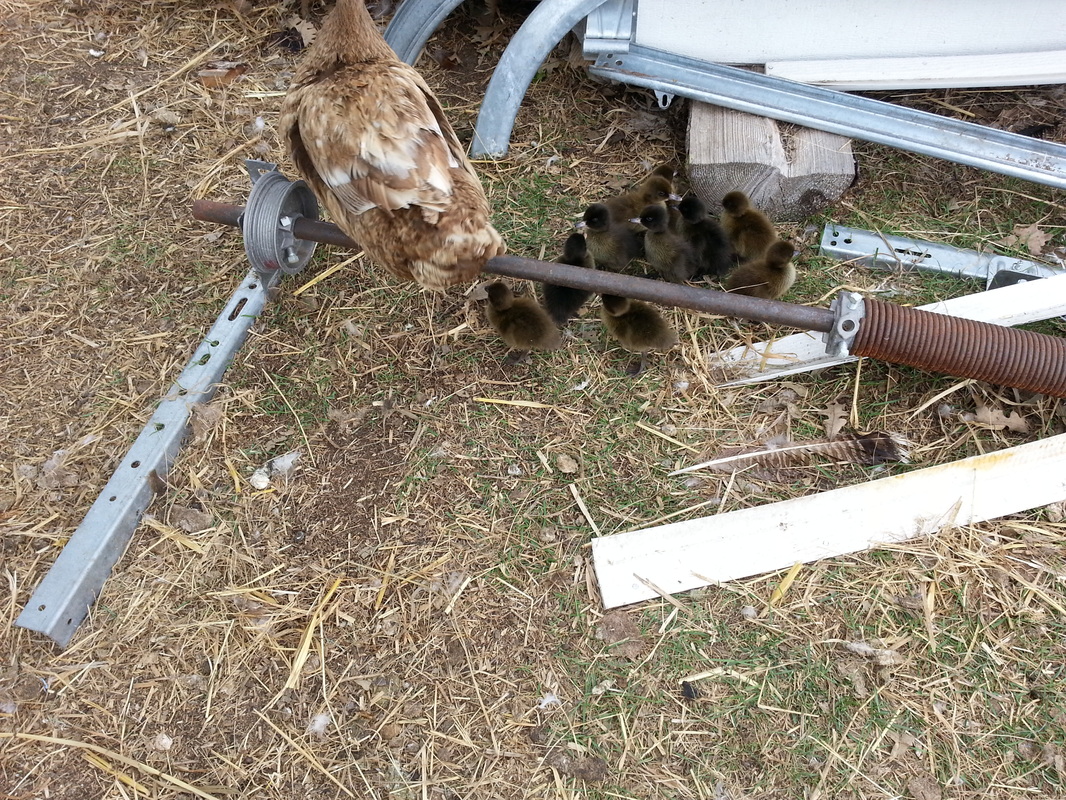
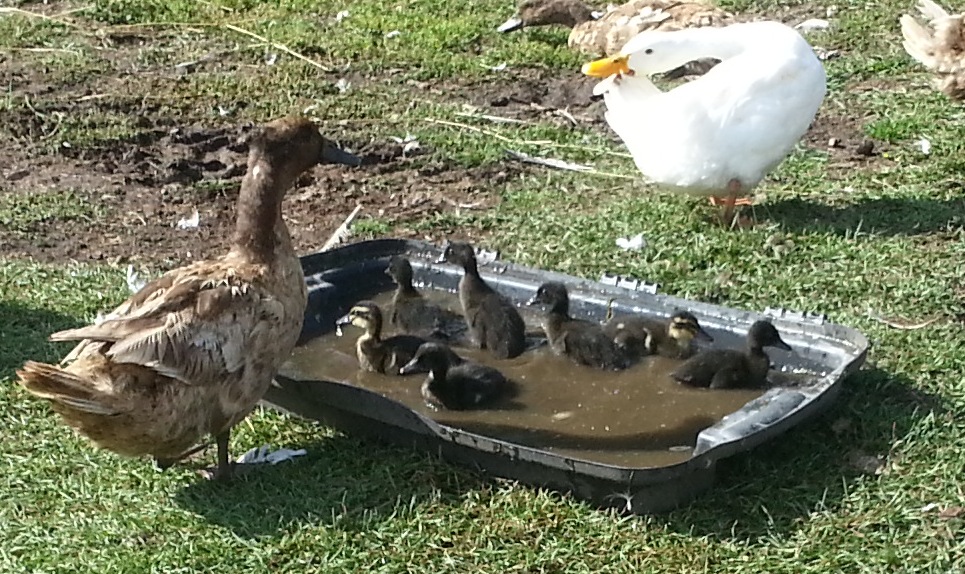
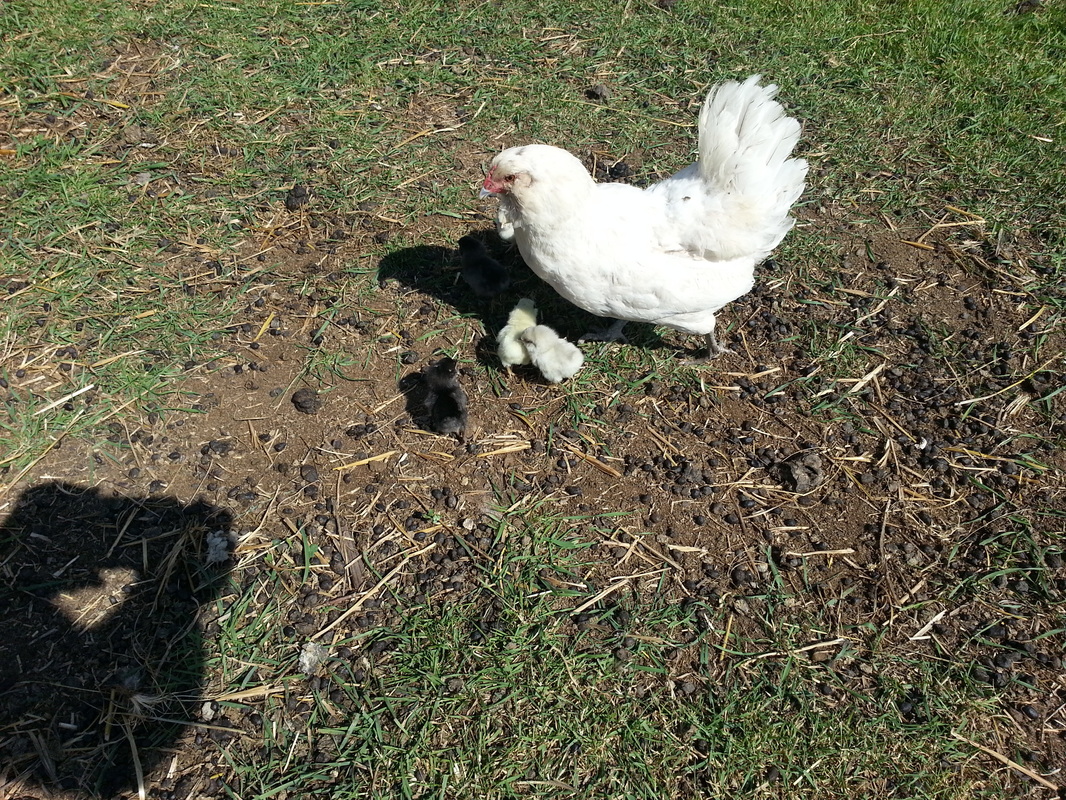
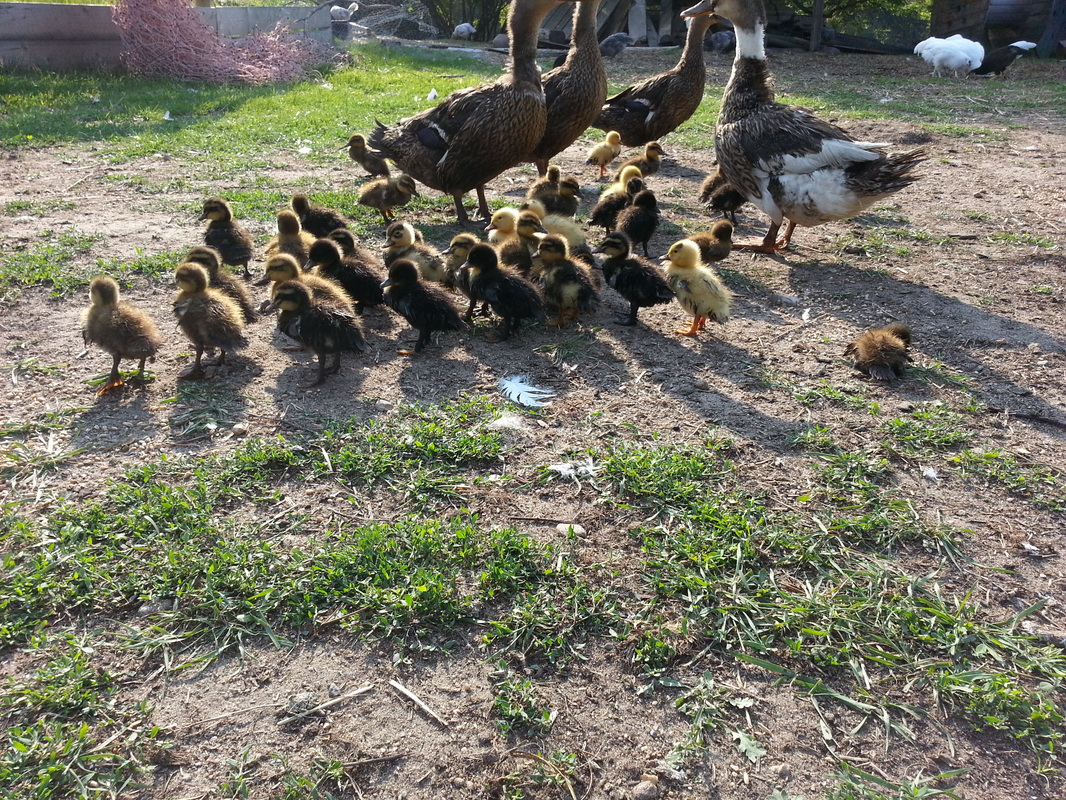
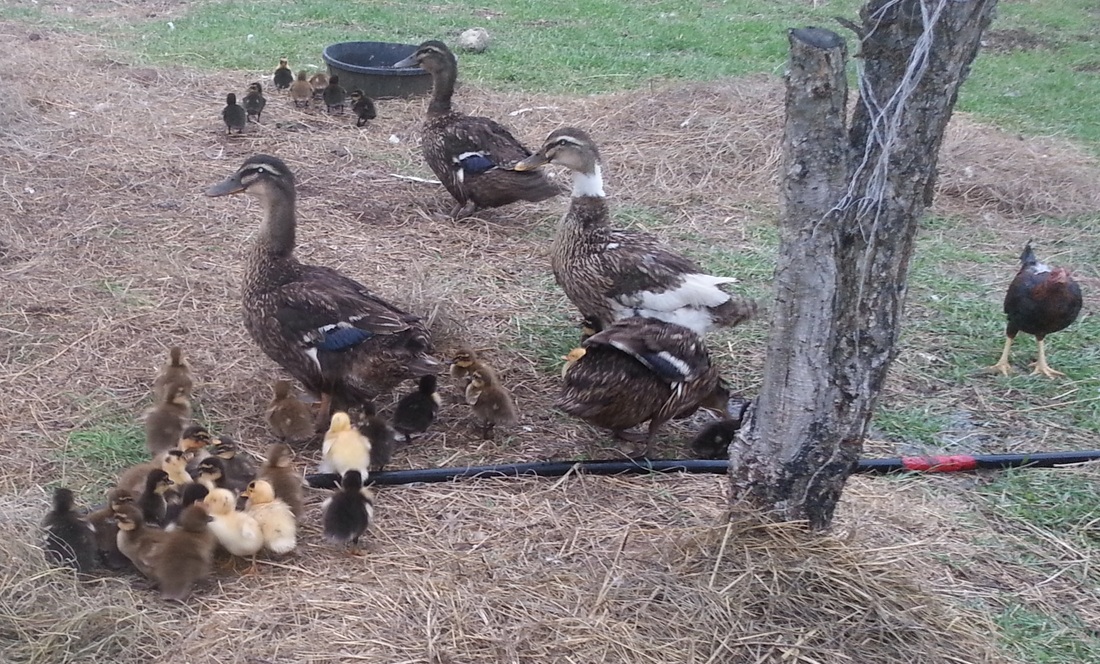
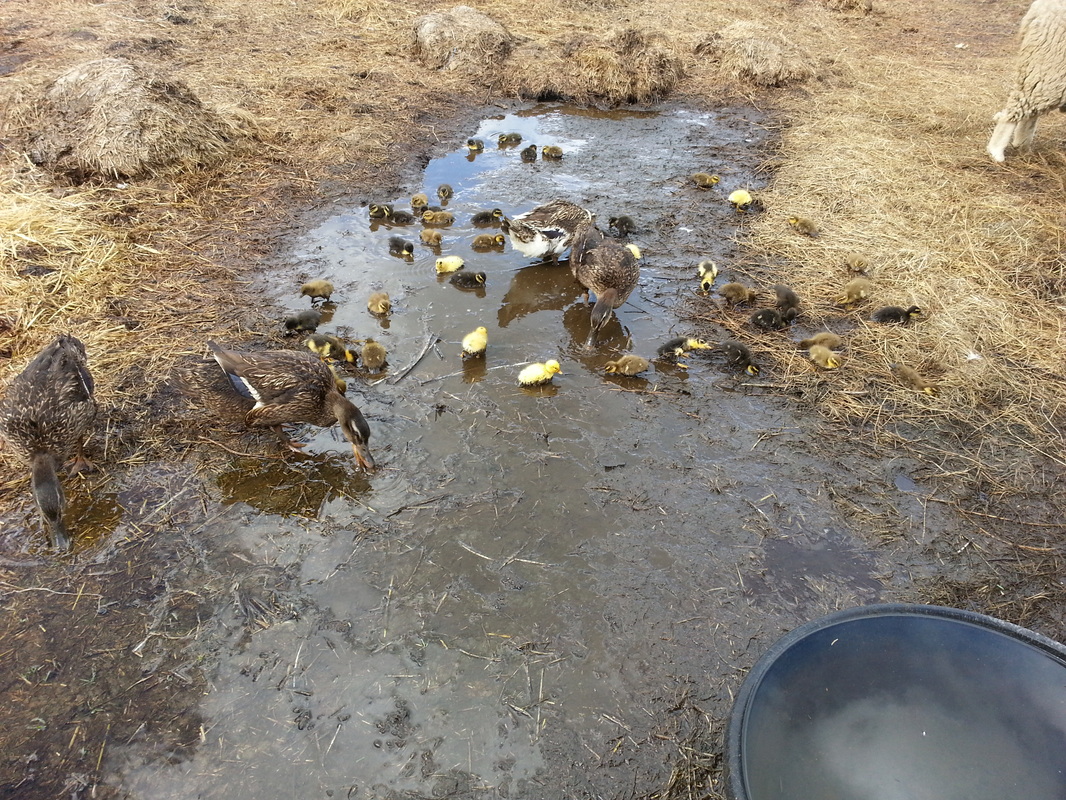
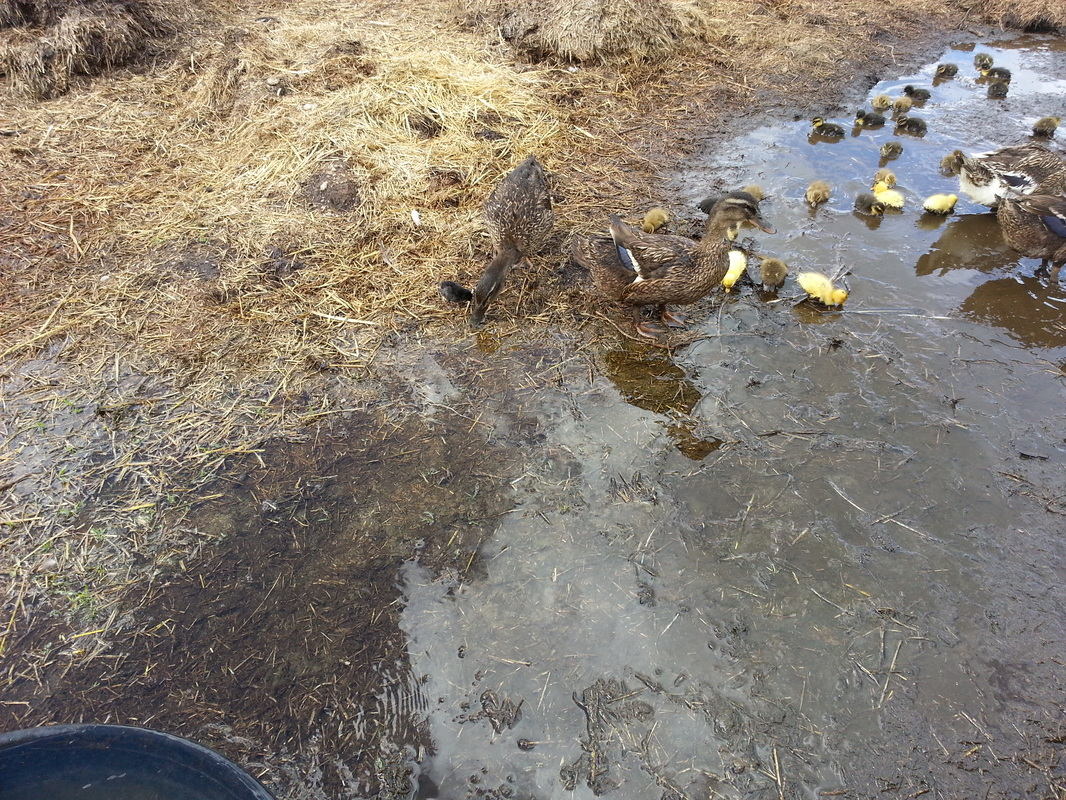
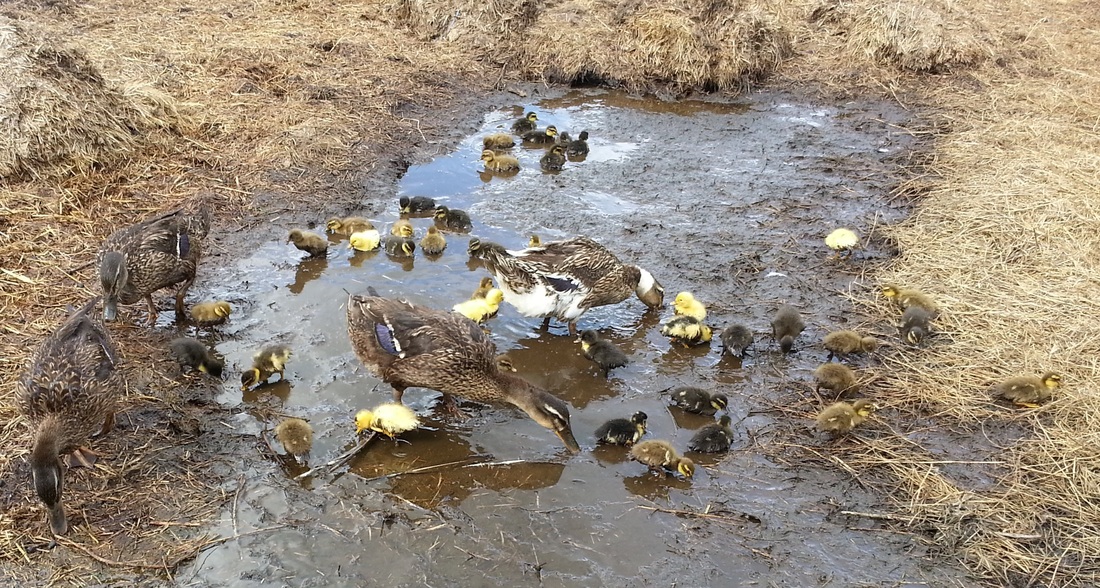
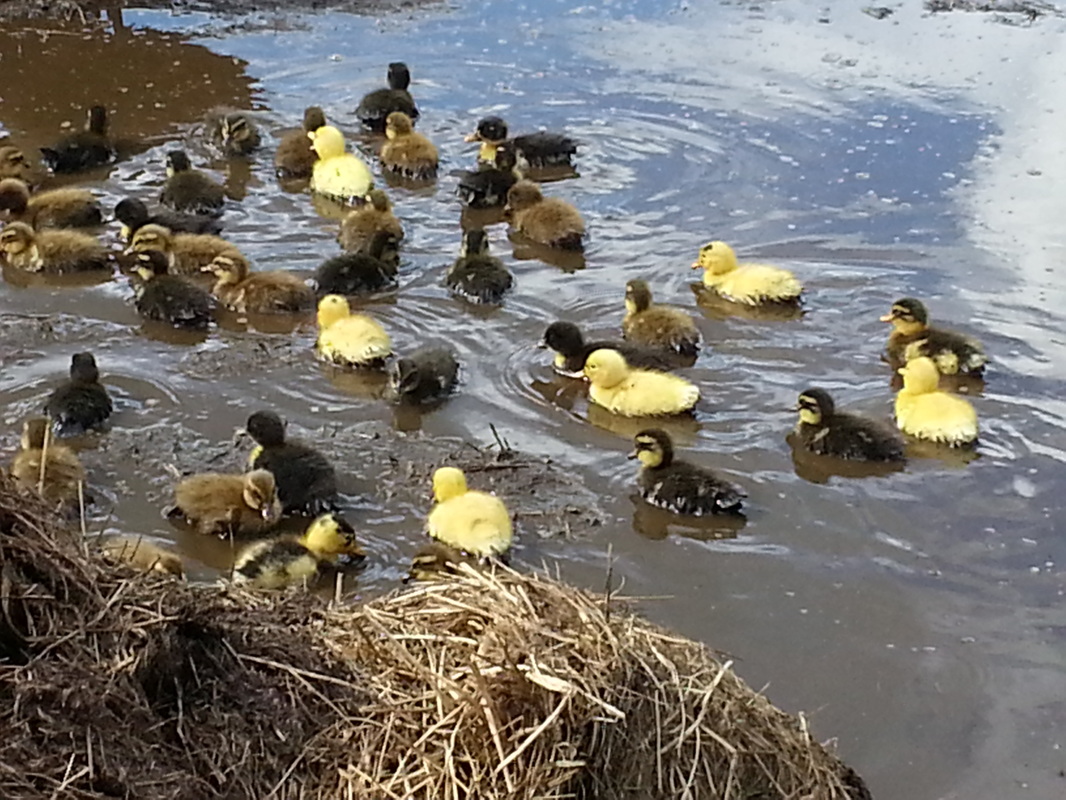
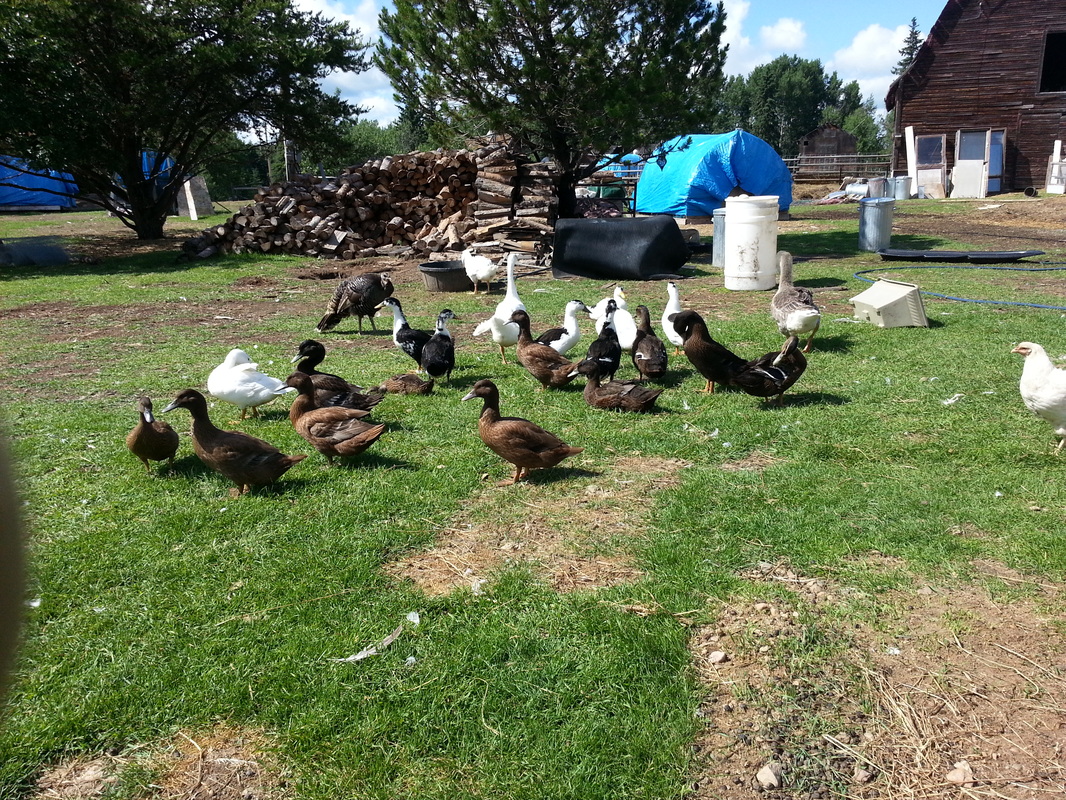
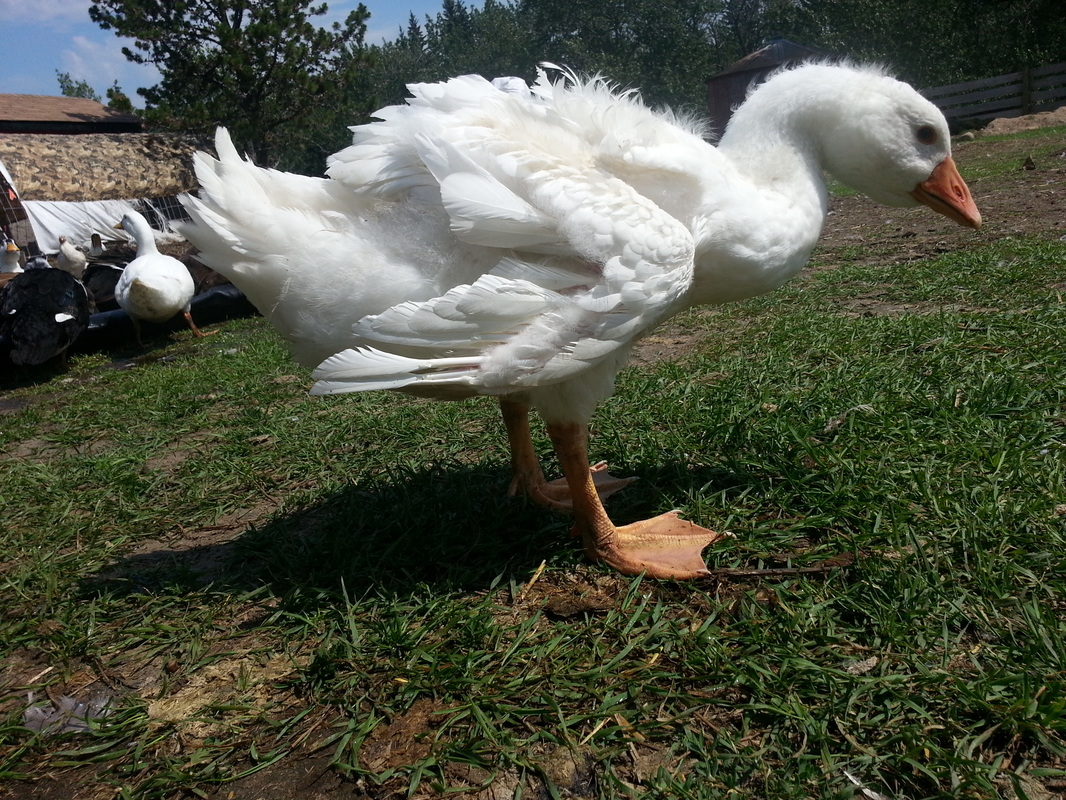
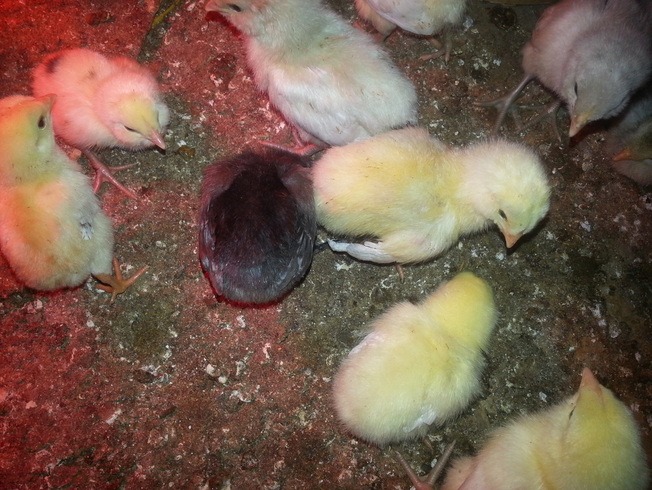
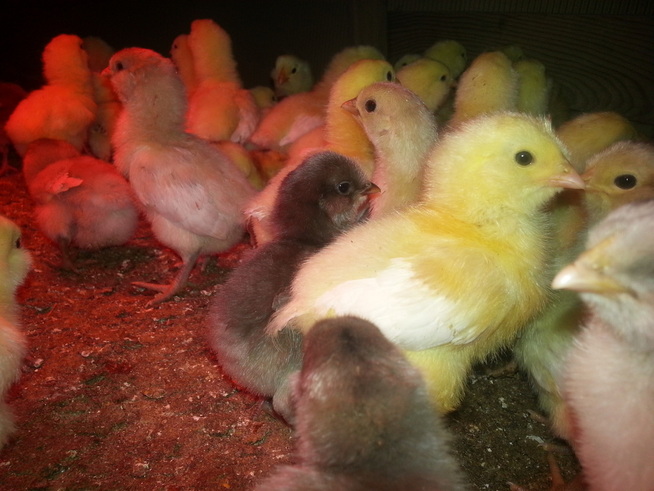
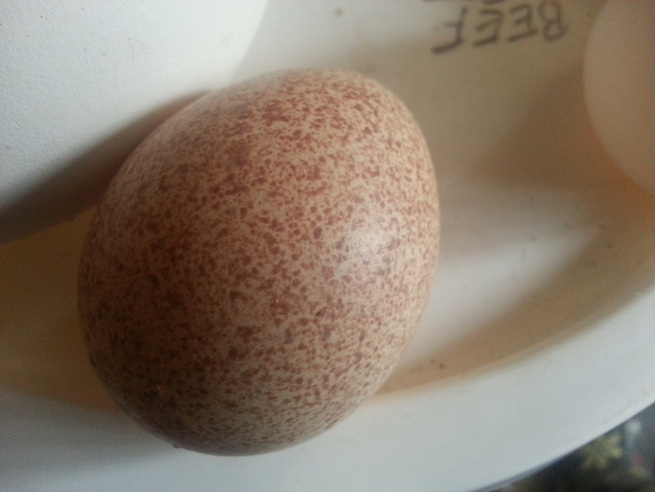
 RSS Feed
RSS Feed